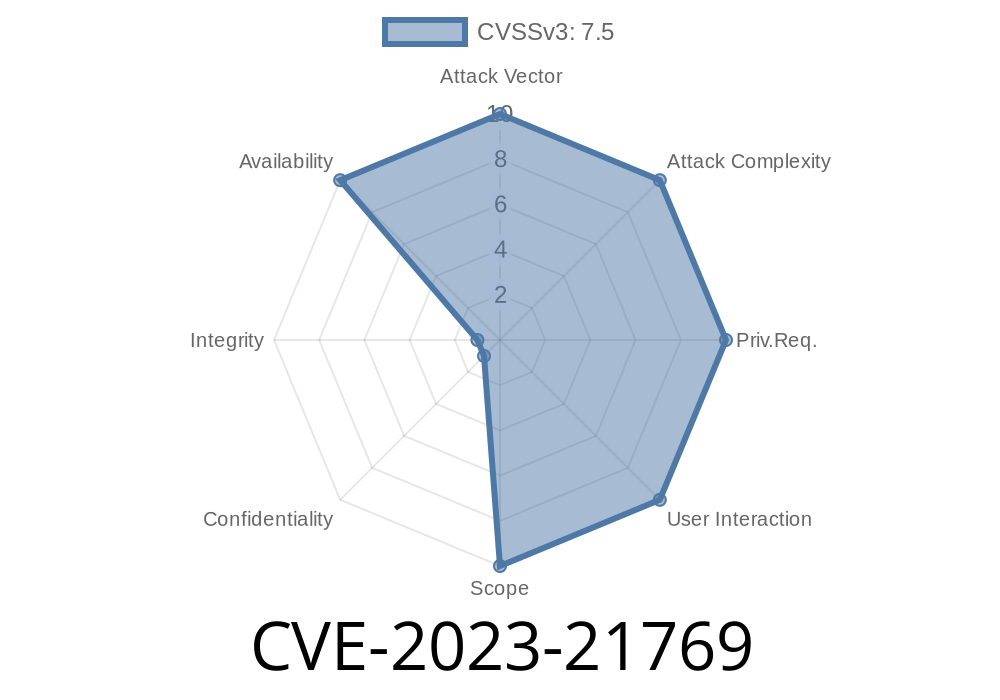Microsoft Message Queuing (MSMQ), a popular communication protocol used in many enterprise applications, was hit by a significant security vulnerability in early 2023. CVE-2023-21769 is a Denial of Service (DoS) bug that could allow remote attackers to crash MSMQ services and impact business-critical systems. In this guide, we'll break down what CVE-2023-21769 is, why it matters, how attackers can exploit it, and what you can do to protect your systems.
What is Microsoft Message Queuing?
MSMQ is a messaging protocol included with Microsoft Windows. It allows applications running on separate servers or devices to communicate reliably, even if one of them is offline temporarily. It's heavily used in banking, retail, healthcare, and government IT for queuing up data and making sure messages get delivered reliably.
Attack Vector: Remote (network-based)
- Severity: High (7.5/10 base score) — NVD Details
Where's the Problem?
The vulnerability exists in the way the MSMQ service processes inbound network packets. If a specially crafted message is sent to the MSMQ service, it can trigger an exception, causing the MSMQ service to crash.
The attack is network-based (you need TCP port 1801 open)
- Exploiting the vulnerability only crashes the MSMQ service process, but repeated exploitation can cause ongoing DoS
The "Evil Packet" Approach
An attacker crafts a message in a certain way—using malformed or oversized data fields that MSMQ is not prepared to handle. When MSMQ tries to parse this message, it fails in a way that leads to a process crash.
#### Simple Steps to Exploit (For Research/Education Only)
port = 1801
# Craft an "evil" message (MSMQ expects a certain format, but we'll just flood/overflow it)
On affected systems, the MSMQ service (mqsvc.exe) will crash and stop.
Note: This is just a sample for educational purposes; do NOT use this activity on any system you do not own or have explicit permission to test.
Force manual intervention to restart services
This can be a big deal in environments that rely on MSSQ for uptime-sensitive messaging.
Microsoft fixed this in their January 2023 Patch Tuesday rollout.
- Reference: Microsoft Security Guide
Example Windows Firewall rule (run as admin)
netsh advfirewall firewall add rule name="Block MSMQ External" dir=in action=block protocol=TCP localport=1801
Monitor and Alert
- Set up monitoring/alerting for MSMQ-related crashes.
More Information and References
- Official Microsoft Security Guide for CVE-2023-21769
- NIST NVD Listing
- MSMQ Documentation
Final Thoughts
CVE-2023-21769 is a powerful reminder that even core Microsoft services like Message Queuing can have critical vulnerabilities. Unpatched MSMQ servers are a prime target for denial of service attacks. It’s essential to apply the latest patches, restrict access to key ports like 1801, and keep a close watch on your event logs. Taking these simple steps can protect you from downtime and costly business interruptions.
Timeline
Published on: 04/11/2023 21:15:00 UTC
Last modified on: 04/19/2023 15:41:00 UTC
